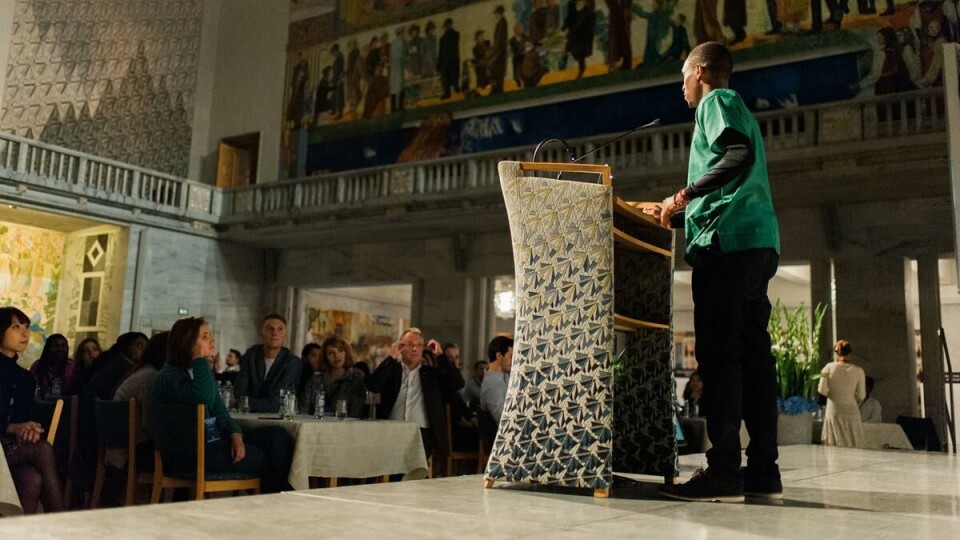
2018 brings sharp rise in international student visa fees
Since 2017, the fee for study permit applications to Norway has increased by over 60 percent. This is continued marginalization, says the leader of the International Student Union in Norway.
A brand new year, and a fresh new start? Not for international students, if the Norwegian Ministry of Justice and Public Security has any say in the matter. In effect from Jan. 1 2018, the fees for study permit applications have increased sharply, leaving present and future international students in agony.
60 percent price jump
International students considering applying or renewing study permits are now forced to cash out the startling amount of 5,300 NOK. That’s a price increase of over 60 percent, from the 2017 fee of 3,200 NOK, according to the website of the Norwegian Directorate of Immigration (UDI). Compared to the visa rates in other Nordic countries, the Norwegian fee is significant: double the price of the Danish fee of 2,110 DKK. Sweden has the lowest rate, with a fee of only 1,000 SEK for international students applying for study permits.
Political Adviser at the Ministry of Justice and Public Security Espen Teigen explains the recent increase in fees as a mere consequence of political debate.
«To apply for a permit in Norway requires payment of a fee to cover costs of administration. This is the case for study permits as well as other types of permits. The application fee for study permits increased from 3,200 NOK to 5,300 NOK from January 1, 2018. This was passed by Parliament as part of the national budget,» Teigen said.
UiO is international – but is it integrated?
Marginalization
Leader for International Students’ Union of Norway (ISU), Eric Kimathi is deeply concerned about the consequences of the increased fees. He paints a larger picture of Norwegian bureaucracy’s continued marginalization of international students.
«It is evident that Norway is no longer marketing itself as an international student friendly country. While other stakeholders such as universities paint a welcoming image to international students the politicians and UDI in particular seem to be the opposite,» he said.
International students do not qualify for funding from Lånekassen, the Norwegian State Educational Loan Fund, and they cannot work for more than 20 hours a week; for them, self-financing an education is hard work. Although free tuition is a boon for international students, the high cost of living is challenging, particularly for non-EU students as they often make up the most economically vulnerable, Kimathi explained.
«Any other added cost on top of the few I have highlighted further fuels the marginalization of international students, resulting to compromised study progress. As well as contributes to failed integration within the Norwegian society, as most time is spent working rather than learning language and engaging in social events with their Norwegian counterparts», the ISU leader said.
Kimathi on Oslo's internationalization: Inclusion of international students is key

Violates principle of free education
The increased application fees is also present on Norwegian student politicians’ agendas. Kristine Berg Heggelund, responsible for International Affairs at the Student Parliament at the University of Oslo, characterizes the increased cost as «unacceptable» and is emphatic about the student parliament’s support of ISU.
«Our main concern related to the fee increase is its violation of the principal of free education. An education that excludes tuition fees is one of the pedestals of the Student Parliament at the University of Oslo. We interpret increased application fees as moving one step closer to tuition fees», she said.
Heggelund further added that this decision is potentially hazardous for the highly spoken-of internationalization of Norwegian institutions for higher education.
Looking ahead, Kimathi hopes to arrange negotiations with UDI and Norwegian authorities to discuss the possibility of reducing visa fees for international students.
Looking for more student news in English? Follow Inter Universitas on Facebook
































